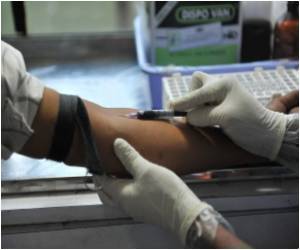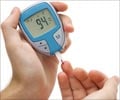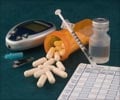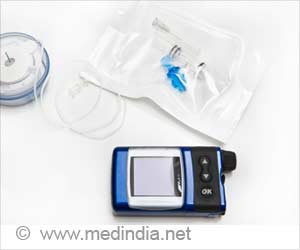A new study has suggested that a simpler form of testing individuals with risk factors for diabetes could improve diabetes prevention efforts by substantially increasing the number

The A1c test measures average blood glucose level over the past 8 to 12 weeks and does not require a person to return for additional testing after an overnight fast. Researchers, led by Ronald T. Ackermann, associate professor of medicine at the Indiana University School of Medicine and a Regenstrief Institute affiliated scientist, report that the A1c blood test, which has been routinely administered to diabetic patients for many years, can also pinpoint pre-diabetes.
"Identifying more individuals with pre-diabetes through a simple test in a physician's office gives us a real opportunity to halt progression to the disease, which is clearly a win-win situation," said Ackermann.
"If you have high blood pressure or heart disease, or multiple other risk factors such as obesity, are over the age of 45, had a past episode of diabetes during pregnancy, or have a family history of the disease, your physician can administer a simple blood test which will show if you are pre-diabetic. If you are pre-diabetic, loosing as little as 10 to 15 pounds through diet and exercise can cut in half your chances of getting diabetes, greatly improving your health and lowering your need for health care," said Ackermann, who is associate director of the Diabetes Translational Research Center at the IU School of Medicine and director of the Indiana Clinical and Translational Sciences Institute Community Health Engagement Program.
Fasting tests, which are currently used to screen for pre-diabetes are difficult to administer primarily because they usually require two visits to the physician's office and because patients often forget to arrive on an empty stomach when they return for the test. The A1c test can avoid both of these problems because it can be performed on a single visit, even if a person has eaten.
The study has been published in the American Journal of Preventive Medicine.
Advertisement












